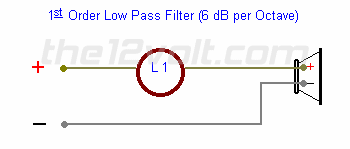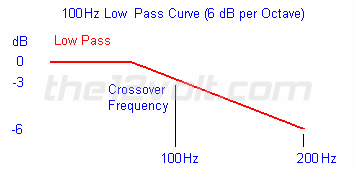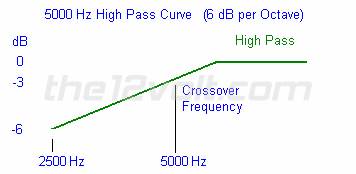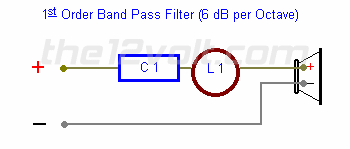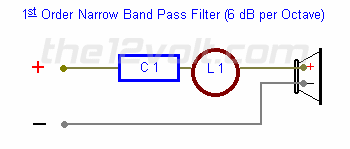
Car Audio / Passive Crossovers, First Order Filters, 6dB per Octave
First Order Filters:
• First Order Low Pass
• First Order High Pass
• First Order Band Pass
• First Order Narrow Band Pass
• First Order Low Pass
• First Order High Pass
• First Order Band Pass
• First Order Narrow Band Pass
First Order Low Pass Filters
|
First Order High Pass Filters
|
First Order Band Pass Filters
|
First Order Narrow Band Pass Filters
|
| << Previous - Low Pass, Bandpass, Highpass Filters | Next - Second Order Filters >> |
Passive Crossovers:
• Low Pass Filters• High Pass Filters
• Band Pass Filters
• Narrow Band Pass Filters
• Zobel Filter
• Acoustical Output & Power
• First Order Filters
• Second Order Filters
• Third Order Filters
• Formulas & Calculators
• 2 Ohm Reference Charts
• 4 Ohm Reference Charts
• 8 Ohm Reference Charts
Car Audio and Mobile Video:
• Glossary of Terms• Passive Crossovers
• Passive Crossover Calculators
• Recommended Wire Sizes
• Subwoofer Enclosures
• Subwoofer Enclosure Calculators
• Thiele - Small Parameters
Help and Additional Resources:
• American Wire Gauge Sizes• Application Guides
• Car Audio Forum
• Car Audio Hot Topics
• Car Stereo Insurance
• Car Audio Manuals
• Mobile Video & Navigation Forum

| Search the12volt.com |
Follow the12volt.com 
Tuesday, January 27, 2026 • Copyright © 1999-2026 the12volt.com, All Rights Reserved • Privacy Policy & Use of Cookies


Tuesday, January 27, 2026 • Copyright © 1999-2026 the12volt.com, All Rights Reserved • Privacy Policy & Use of Cookies
Disclaimer:
*All information on this site ( the12volt.com ) is provided "as is" without any warranty of any kind, either expressed or implied, including but not limited to fitness for a particular use. Any user assumes the entire risk as to the accuracy and use of this information. Please
verify all wire colors and diagrams before applying any information.




